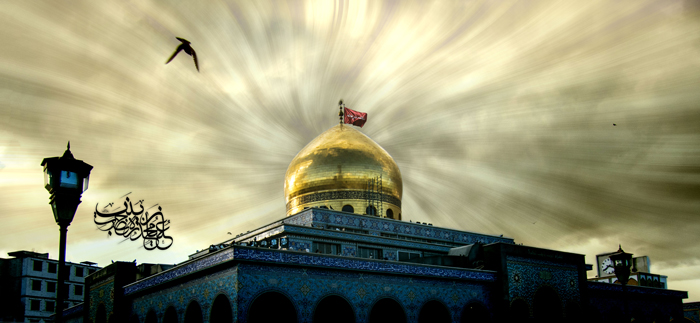Lady Zaynab(A.S.) the Fragrance of Holy Ahl-ul-Bayt

Daughter of the Holy Prophet’s (peace be upon him and his household) daughter. Sister of the King of Martyrs. She is a true role model for any woman today of any religion. She showed the world the definition of womanhood. Her bravery and courage stands alone in a field of millions. She was tied up and taken as a prisoner. She had her scarf ripped off her head, she had her house burned to the ground. She was Janab-e-Zainab.
In her character she reflected the best attributes of those who raised her. In sobriety and serenity she was likened to Umm ul-Muminin Khadija, her grandmother (s.a.); in chastity and modesty to her mother Fatima Zahra (s.a.); in eloquence to her father Imam Ali (a.s.); in forbearance and patience to her brother Imam Hassan (a.s.); and in bravery and tranquility of the heart to Imam Hussain (a.s.). Her face reflected her father’s awe and her grandfather’s reverence.
Ibn Abbas quoted Sayyeda Zahra (s.a.) as having said that her daughter Zainab, like her father, was unparalleled in literary eloquence and courage. The speech she delivered in the assembly in presence of Yazid was at the zenith of eloquence and impressiveness.
After the demise of the Holy Prophet (peace be upon him and his household), there came the period of distress and hardship in the life of Sayyeda Zainab (s.a.). She stood by her mother as far as the question of supreme mandate of her father was concerned. When her mother delivered the Fadak sermon, she was only 4 years old, but narrated the sermon so lucidly and expressively that the people from Bani Hashim remembered it by heart. Later the Shiite scholars recorded it that is why she is called Zainab the narrator of traditions.
Sayyeda Zainab (A.S) in Karbala
Zainab (s.a.) is the shining sun in the history of Islam and of humanity. Her brother’s name and Karbala associate the idea of freedom, justice, humanity, virtue, fighting against despotism, with the realization of the sovereignty of Allah. The history of Karbala is based on two pillars: the rising of Imam Hossein (a.s.) and the rising of Zainab (s.a.). She was an outstanding figure in the history of Karbala endowed with divine steadfastness and fortitude. She sacrificed her two sons and one should not say anything if one devoted his life for the cause of Allah. After the martyrdom of her brother and her two sons, she said: "O my Lord! Accept our humble sacrifice to You.”
When Zainab reached Kufa, she addressed people with fury words: "Praise to Allah, and may the blessing of Allah be upon Muhammad and his progeny. O people of Kufa, you are hypocrites and deceitful. You feign to be sorry for the death of my brother and his companions. May you always shed tears. I find nothing in you but flattery, evil acts and thoughts, pride and spite and ill will. By Allah! You deserve lasting sorrow instead of joy. Shames on you, your hands are imbrued with the blood of the son of the Holy Prophet (peace be upon him and his household), the one who was your sole refuge in case of adversity. By your evil act and disloyalty, you incurred the wrath of Allah against you. Woe betides you! No one will intercede with Allah for you." Her furious words provoked people of Kufa to avenge Hussain’s martyrdom. This frightened Ubaidullah and his cruel agents. She also delivered a furious sermon in the court of the caliph that made his authority and despotic rule feel undermined. She said: "I fear no one but Allah. Make whatever evil plot you can. Blazes are waiting for you in the hereafter. You’ll he accountable to Allah for your atrocities.”
The Foundation of Mourning (Majales A’azaa)
Another unique feature of Zainab’s character was her establishment of mourning ceremonies. This tradition which has lived in the memories and hearts of millions of Muslims to this day, has kept the sacrifices of Imam Hussein alive, and brought dynamism to every movement that aimed at removing injustices on earth.
After every Majlis, the women would offer their condolences to Zainab (s.a.) and the men to Imam Zain-ul-Abedeen. These majales made quite a stir in the cities, and the sound of crying and beating of chests and heads affected the minds of the inhabitants, and made them sadder and wiser to the events of Karbala.